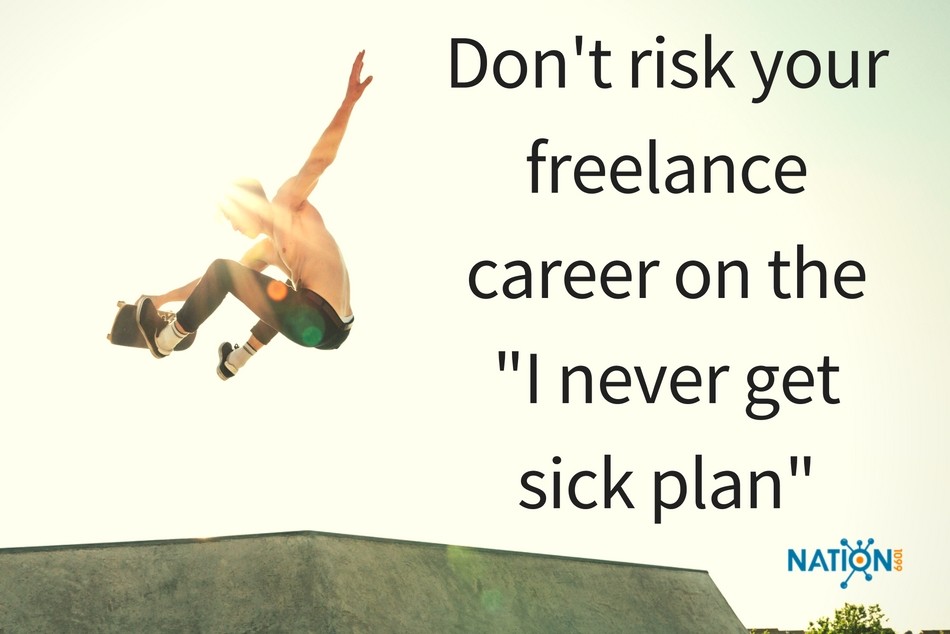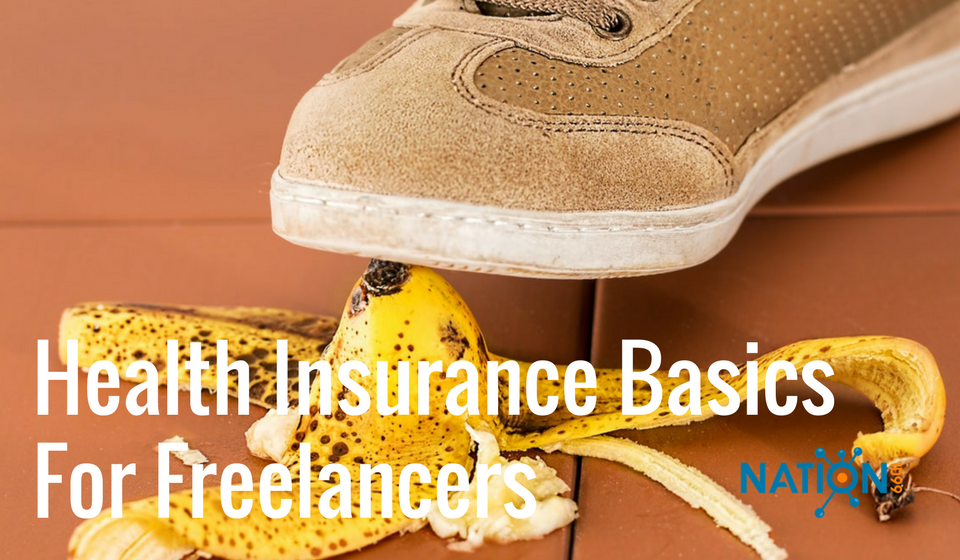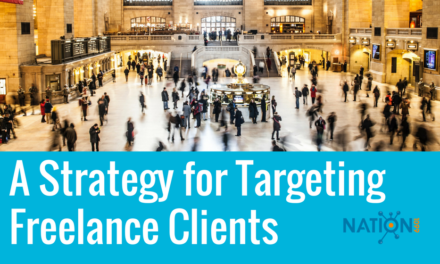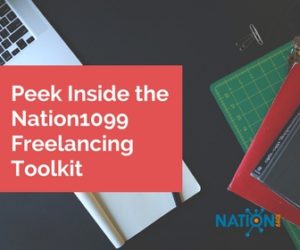If you are watching the politicking around the ACA (a.k.a. Obamacare) and what it will mean for health insruance for freelancers, you’re probably pretty confused.
In addition, open enrollment periods come along occasionally that put a ticking clock on your search for health insurance that suits your gig economy work. There’s a lot to know and plenty to consider when choosing the right plan.
Let’s cut through some of the worry and survey the best options available to the self-employed independent contractor.
Do I reaaaallly need health insurance?
You sure do! In addition to the basic purpose of health insurance (to protect you from financial disaster in the event of an expensive illness or injury), the Affordable Healthcare Act requires individuals who opt out of health insurance to pay a fee of 2.5% of household income or $695 per adult (whichever is higher).
That’s like paying the cost of insurance without actually getting any, which is pretty lousy bang for your buck!
Where do I look for it health insurance for freelancers?
The best place to start is the healthcare.gov webpage. By simply entering your zip code, the interface there will direct you to the marketplace for your state.
A state marketplace works much like the process you know from shopping for travel deals or the best price on a computer. We often use price aggregators to help us compare offers and search for the best price.
The state marketplaces are set up to help you compare rates and other plan details. They lay out all your options on one web dashboard and help you make informed decisions on your health coverage.
Precious metals — How do I choose a plan?
Once you’ve plugged in your information and your marketplace has populated your options, you’ll notice a couple things. These health insurance plans are usually ranked using a metaphor of precious metals. The most comprehensive — and expensive — plans are labelled as platinum or gold, followed by silver and bronze.
Platinum plans at one extreme offer the insured individual the most comprehensive coverage and lowest deductibles at the cost of having the highest monthly premiums.
Conversely, bronze plans offer minimal benefits and leave subscribers with the highest out-of-pocket payments for medication and health services, but they also have the lowest monthly premiums.
To give you a better idea of how these policies work in action, a platinum plan is projected to cover roughly 90 percent of your out of pocket expenses, and a bronze plan will cover bout 60 percent of these costs.
The goal here is to find the point on this sliding scale that best accounts for your monthly income and health needs, which leads us to the next topic.
Know your “deal breakers”
Adam Cecil of PolicyGenius recommends listing your essential considerations when exploring health insurance for freelancers. In a recent post Cecil walks through some of the most common points to help you arrive at your deal breakers, which I’ve summarized below.
Knowing the answers to these questions will make your decision much easier:
- Will a plan let you keep your doctor?
- Will the plan cover important prescription medications you need to take?
- Will you need a referral any time you need to see a specialist?
- If you hate waiting on hold, does the carrier you are considering have a high-functioning online presence?
It may come down to compromising on some of these points, but these are the kind of big picture items you do not want to overlook. Your health and budget will thank you later!

Do I qualify for a subsidy?
The good news where health insurance for freelancers is concerned is that many independent contractors will quality for a government subsidy to make a good plan viable. If you make under $40,000 a year you likely qualify for some financial aid. You can see if you qualify using this Kaiser Family Foundation calculator and see how a big of a subsidy you can expect.
This is one of the main reasons it’s important not to let “sticker shock” throw you. In our taxation article we explained that employers are required to cover a significant share of health insurance expenses and tax obligations for the employee. While we don’t have this same luxury as 1099er’s, when it’s all said and done, tax credits can get most of us into similar cost territory as our peers in the employed world.
Not finding what you’re looking for? Here are some other options:
I’m sure you’ve heard someone in your circle say I’m healthy; I won’t need health insurance, or I don’t expect any complications this year.
While this may sound a dangerous gamble, it also comes from a real problem — that is difficult for some of us to put $200+ aside each month to cover health insurance, even with a subsidy. Depending on your situation, you may have some other options at your disposal:
The “Catastrophic Plan:” If you are 30 or younger or qualify for a “hardship exemption,” you may be approved for these very low premium, high deductible plans.
If you are more concerned with the cost of premiums adding up, rather than expenses from medical attention, this specific plan may be worth a look, but, as the title implies, the catastrophic plan will you out of a medical event on the “disaster level,” and won’t offer much help beyond that (other than 3 primary care visits a year before your deductible is met).
High-Deductible Private Insurance: This is one of a number of other insurance solutions that Carol Tice, founder of the Make a Living Writing blog, mentions in her very thorough post on the many non-traditional insurance options available to freelancers.
Along the same lines as the catastrophic plan above, this strategy saves you a lot of money on the front end with low premiums and coverage that primarily accounts just for horrible illnesses or accidents that could bankrupt you. The amount you would have needed to spend on low-deductible premiums may actually cover most of your non-catastrophic medical expenses.
To check options outside of the marketplace, visit the Plan Finder.
Much better safe than sorry
You have a choice. Well, actually you have many choices! So many it can seem overwhelming.
But don’t let that keep you from dealing with. Health insurance for freelancers isn’t something to take lightly. As solopreneurs we’re always looking for ways to cut down on costs and unnecessary expenses, but you do not want to be penny-wise and pound-foolish with your health.
Even if you opt for a plan that isn’t everything you hoped and dreamed of, you will sleep better at night knowing your health coverage isn’t the “never get sick plan.” Alleviating this worry may just keep you in better health!
And health coverage isn’t a permanent deal — our lives and business can change immensely from year to year. If you choose a plan that costs a little more than you can comfortably pay or offers more coverage than you realistically need, you can always change it next year.
If you haven’t started thinking about where health insurance fits into your budget, do it now before you really need it!
Recent news on health insurance for freelancers
- “The ACA’s structuring of an effective individual market has led to some underappreciated benefits for employers,” according to Cameron Congdon, North American health and benefits leader of Willis Towers Watson in an article about individual coverage and open enrollment in Becker’s Hospital Review. “The contingent workforce, as well as those in the “gig” economy — or those taking short-term or freelance work commitments — are able to purchase individual insurance, reducing pressure on employers to directly employ these workers.”
- The ACA has reduced what economists call “job lock” according to a new survey of H.R. professionals. The ability to buy individual coverage has allowed more people to go freelance. (Which, if you’ve read our roundup of workforce and gig economy trends data, you know a lot of people want to do.)

Ben Shanbrom is a freelance writer, musician and copy editor who works with artists and clients within his native New Haven and beyond.












